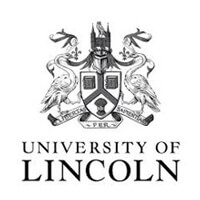fees waived
International Relations and Social Policy, BA (Hons), with industry placement
University of Lincoln, United Kingdom
Subject ranking
UK / The Times 20th
UK / The Times 36th
UK / CUG 63rd
Costs
food & rentS$16.8K / year
Entry requirements
Scholarships
Unlimited quantity
Unlimited quantity
Unlimited quantity
Unlimited quantity
Limited quantity
Limited quantity
Information
Code
Code
Intakes
Website (External)
Programmes
Information
Duration
2028
Course summary
This joint programme draws on a range of social science disciplines to examine challenging and controversial national and international issues such as human rights, poverty and social exclusion. International Relations is the study of how political, economic and cultural forces interact to mould relationships between nations. Social Policy examines how the decisions that determine the way we live are made. Studying these two interdisciplinary subjects together provides students with the opportunity to develop an understanding of the way in which the national concerns of a country feed into its social policy agenda. Teaching is informed by the research expertise of academic staff from the School of Social and Political Sciences, who contribute to national policy debates and are engaged in research across a range of specialisms, currently including the politics of welfare, gender and sexuality, the international political economy, war crimes and genocide, and the politics of global health. The first year of the degree introduces central issues and concepts in international relations, social policy and the social sciences. Students can learn about social problems and social policies in the UK and overseas, whilst developing research and IT skills. In the second year, students may build on this foundation and choose from a range of optional modules covering subjects of special interest, such as intelligence and national security, international relations in the Middle East, war crimes, community and policy making, families and human rights. In the final year, students are expected to produce an independent study in a research area of their choice. For the most up to date module information, please visit the course page for this programme on our website. Some programmes provide you with the opportunity to focus your study in a particular area through optional modules. Timetabling arrangements may limit the availability of some optional modules to some students. As the options often reflect staff research interests, they may alter over time due to staff availability. The way students will be assessed on this course will vary for each module. It could include coursework, such as a dissertation or essay, written and practical exams, portfolio development, group work or presentations to name some examples. Throughout this degree, students may receive tuition from professors, senior lecturers, lecturers, researchers, practitioners, visiting experts or technicians, and they may be supported in their learning by other students.Modules
Assessment method
The first year of the degree introduces central issues and concepts in international relations, social policy and the social sciences. Students can learn about social problems and social policies in the UK and overseas, whilst developing research and IT skills. In the second year, students may build on this foundation and choose from a range of optional modules covering subjects of special interest, such as intelligence and national security, international relations in the Middle East, war crimes, community and policy making, families and human rights. In the final year, students are expected to produce an independent study in a research area of their choice. For the most up to date module information, please visit the course page for this programme on our website. Some programmes provide you with the opportunity to focus your study in a particular area through optional modules. Timetabling arrangements may limit the availability of some optional modules to some students. As the options often reflect staff research interests, they may alter over time due to staff availability.
A local representative of University of Lincoln in Singapore is available online to assist you with enquiries about this course.

